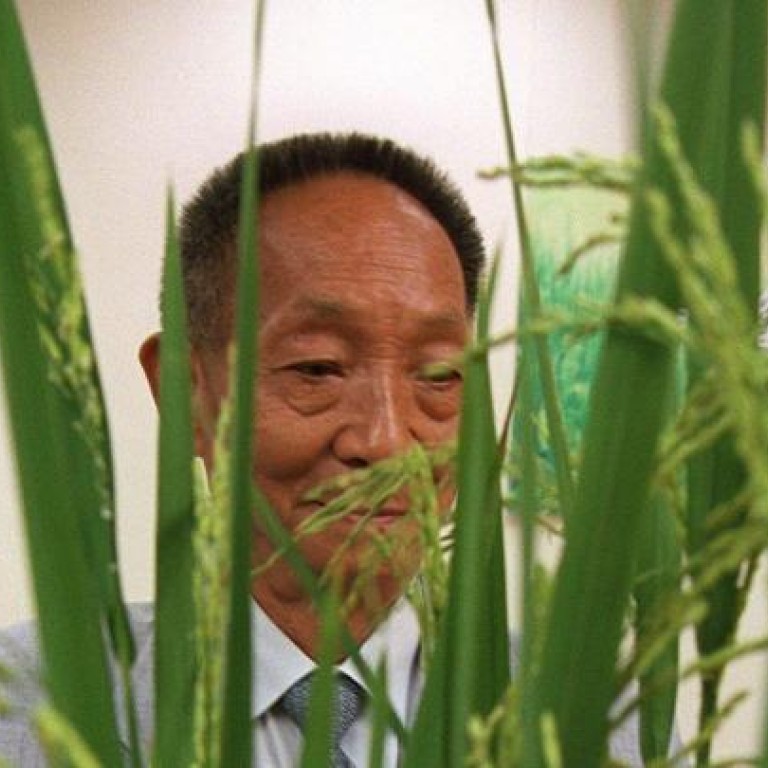
Annan, agriculture scientist win Confucius Peace Prize
Former UN chief and agricultural scientist who hybridised a high-yielding variety of rice to receive Beijing's alternative to Oslo's award
Former United Nations secretary general Kofi Annan and Chinese agricultural scientist Yuan Longping will share this year's Confucius Peace Prize, its organiser, the China International Peace Studies Centre, said yesterday.
Annan was given the prize for "his enormous contribution to the reform and revival of the United Nations and bringing a new spark of vitality to the organisation during his time as its secretary general and as the UN and Arab League special envoy to Syria".
Yuan, known as the father of hybrid rice in China, was cited for "achieving a historic breakthrough in hybrid rice breeding and solving the problem of food safety for people today".
The chairman of the Confucius Peace Prize Committee, Qiao Damo, said the pair would share a cash prize of "many, many" times the 100,000 yuan (HK$123,000) awarded to former Taiwanese Kuomintang chairman Lien Chan, the first Confucius Peace Prize laureate in 2010, but the committee was still working out the exact amount.
"It'll be surprisingly high," he said. He said the centre would also set up a foundation in Hong Kong, similar to the Nobel Foundation, to guarantee sustainable funding for the award.
Annan and Yuan were chosen from a shortlist of eight nominees, which also included Microsoft founder Bill Gates, UN Secretary General Ban Ki-moon, Gyaincain Norbu, the 11th Panchen Lama chosen by mainland authorities, and Wang Dingguo, the sole surviving woman to have taken part in Mao Zedong's Long March, who is little known outside the mainland.
Annan and Yuan each won 15 votes in a one-off ballot by a panel of 39 academics, mainly from the mainland, which included controversial leftist Professor Kong Qingdong who claims to be a 73rd-generation descendant of Confucius.
The award, which has been widely ridiculed, was hastily launched by an obscure group of mainland academics in 2010, apparently with Beijing's backing, when the Norwegian Nobel Committee was about to award the Nobel Peace Prize to dissident Chinese writer Liu Xiaobo .
The centre, an NGO Qiao registered in Hong Kong, awarded the second Confucius Peace Prize to then Russian prime minister President Vladimir Putin in October last year after the Ministry of Culture ordered the former organiser, a cultural NGO affiliated to the ministry, to disband over concerns it was generating bad publicity.
Qiao said he understood the ridicule generated by the award, which was misconceived as something that had popped out of nowhere, but the centre was determined to nurture the award as an alternative to the Nobel Peace Prize, with a broader view of peace.
He admitted that the awarding of the Nobel Peace Prize to Liu was the trigger behind the first Confucius Peace Prize, which he said took only two weeks to prepare as a show of disapproval of the Nobel committee's decision.
"The Confucius Peace Prize is designed to convey the Chinese view of peace and Oriental thoughts on peace to complement the Nobel Peace Prize as an award representing the Western perspective," he said.
